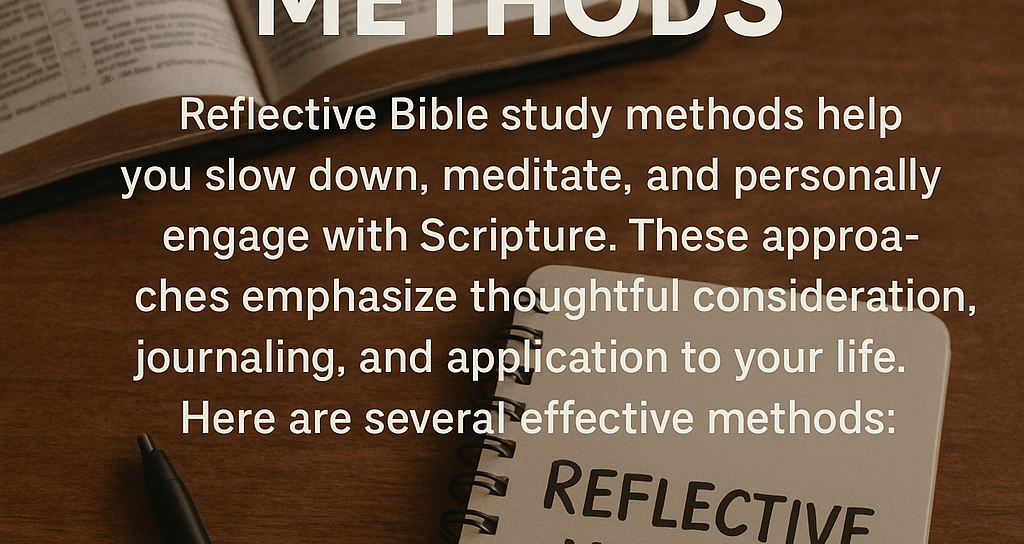Devotional & Reflective Methods
A devotional study is more than analyzing the structure or context of a passage—it is about meeting with God in His Word. What makes a study “devotional” is its intentional focus on spiritual reflection, personal connection, and heart-level response. Rather than primarily seeking information, devotional study prioritizes transformation. It slows the pace and creates space to listen, pray, and consider how God's Word speaks into one’s life right now.
In a devotional approach, Scripture is not just read—it is received. The reader asks not only “What does this mean?” but also “What is God saying to me through this?” This method often includes prayerful meditation, journaling, and applying a passage in a way that shapes attitudes, renews affections, and stirs worship. It is less about mastering the text and more about being mastered by it.
Bridging knowledge and heart transformation is one of the devotional method’s greatest strengths. While solid interpretation is still important, the goal is to move from understanding into spiritual formation. Devotional study challenges the believer to bring the truths of Scripture into areas of personal struggle, relationships, purpose, and worship. It’s where biblical insight and daily obedience meet—where the living Word speaks life into the soul and reshapes the heart to reflect the heart of Christ.


The Classic Devotional Method
Pray for understanding and guidance.
Read and meditate on a chosen passage.
Write out a personal application from the passage.
Memorize a key verse.
Assess your application over time to see growth or change.
The TEXT Method
Talk to God in prayer before reading.
Encounter God and humanity in the passage—ask what it says about each.
Xamine your heart for areas needing change.
Talk to God and others about what you’ve learned.
Guided Devotional Books
Use a published devotional (like My Utmost for His Highest).
Read the provided Scripture and reflection.
Respond with prayer and consider the suggested application for your life.
Pray for understanding and guidance.
Read and meditate on a chosen passage.
Write out a personal application from the passage.
Memorize a key verse.
Assess your application over time to see growth or change.
Application-Focused Devotionals
Read a passage.
Ask, "How does this speak to my current situation?"
Write down one practical thing you will do today in response.


Lectio Divina
A classic Christian practice for reflective reading:
Read a short passage slowly.
Reflect on a word or phrase that stands out.
Respond by talking with God about what you noticed.
Rest in God’s presence, letting His Word sink in.
Contemplative Reading
Read a verse or two several times, each time more slowly.
Sit quietly and let the words echo in your heart.
Ask: “What do I sense God whispering to me through this?”
Breath Prayer with Scripture
Choose a short verse or phrase (e.g., “The Lord is my shepherd”).
As you breathe in, say the first part in your mind.
As you breathe out, say the second part.
Repeat for a few minutes, letting the Scripture calm and center you.
Imaginative Prayer (Ignatian Meditation)
Read a Gospel story.
Close your eyes and imagine yourself in the scene.
What do you see, hear, feel?
Reflect on what God might be showing you through this experience.
Stillness and Listening
Read a short passage.
Sit in silence for several minutes, simply listening for God’s gentle voice or nudges.
Jot down any impressions or thoughts that come.
Breath Prayer with Scripture
Write out a single verse that speaks to you.
Underneath, write a few sentences about why it stands out today.
End with a short, honest prayer in response.
Gratitude Reflection
Read a psalm or comforting passage.
Pause to thank God for any word or promise that brings you comfort.
Write or say a brief prayer of gratitude.
